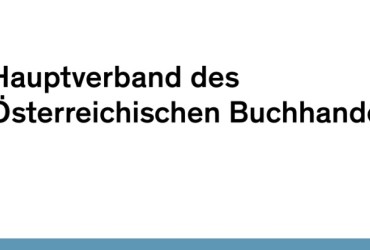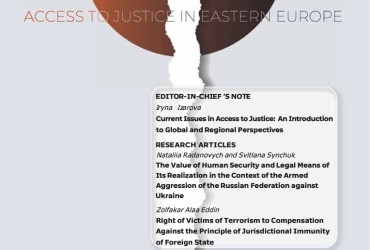
May
Our New Issue of AJEE has been launched!
Our New Issue of AJEE has been launched!
This spring AJEE issue features a diverse array of compelling articles from authors hailing from Albania, Kosovo, North Macedonia, Romania, Slovakia, and Ukraine, sure to capture the interest of professional readers. We are happy to expand our boundaries to Egypt, Kazakhstan, Morocco, Portugal, and the United Arab Emirates, and present a set of interesting and insightful articles from these jurisdictions. We are glad to present articles from researchers from all over the world, which are interrelated with the aspects of access to justice in the European Union as well as in a global context.
Keeping my role as Editor-in-Chief, I would like to draw particular attention to the following few publications.
In this issue, our readers may find an excellent article by Bledar Abdurrahmani and Tidita Abdurrahmani titled "Truth Revelation Instruments in Post-Communist Albania: Transitional Justice Non-Feasance in Investigating Communist Crimes and the Fate of Missing Persons."
This article explores the challenges of uncovering the truth about human rights violations during Albania's communist regime. Authors assess the effectiveness of legal measures implemented over the past three decades to address these crimes, particularly regarding the prosecution of perpetrators and the fate of missing persons. Using qualitative analysis of Albanian legislation and policies, the study reveals shortcomings in transitional justice efforts. Despite democratic reforms, the authors find that justice goals remain unmet, with ex-communist officials escaping accountability and the truth about past atrocities remaining elusive. Furthermore, the ongoing issue of 6,000 missing persons' remains underscores the urgent need to uphold human rights standards.
In this edition, readers will find Ardrit Gashi's illuminating piece, "Justice in Property Matters in Kosovo: A Lesson from a Postwar Country."
Gashi's work delves into the complexities surrounding property rights in Kosovo, a topic rife with historical intricacies and legal challenges. Through meticulous research and analysis, Gashi explores the various property disputes stemming from ethnic conflicts, discriminatory laws, and wartime conditions. He also examines the aftermath of these disputes, offering insights into strategies for future prevention and material damages recovery.
Gashi's findings reveal three primary categories of property disputes in Kosovo, each with its unique set of challenges and implications. While strides have been made in addressing post-war property claims, significant injustices persist in other areas, prompting Gashi to propose innovative solutions within the realm of modern law. Overall, this article offers valuable insights into the complexities of property justice in post-conflict societies, making it a must-read for scholars, policymakers, and practitioners alike.
In his research article, Hryhorii Berchenko explores the nuanced relationship between judicial interpretation and informal constitutional changes, focusing on questions of legitimacy within the framework of the doctrine of constituent power. Author begins by highlighting the delicate balance between stability and dynamism in constitutional law, emphasizing the role of the judiciary in interpreting the constitution to adapt to changing societal norms. He delves into the concept of informal constitutional changes, examining the potential risks and legitimacy concerns associated with judicial intervention. The study concludes by asserting the crucial role of judicial activity in safeguarding the material constitution, principles, and human rights. Berchenko argues that judicial interpretation serves as a vital mechanism for protecting individual rights and preventing democratic decisions from infringing upon human rights. Moreover, he suggests that the judiciary's approach to informal constitutional changes can serve as an indicator of a country's democratic integrity. Overall, this article offers valuable insights into the intricate dynamics of judicial interpretation and informal constitutional changes, making it of interest to scholars, policymakers, and legal practitioners alike.
I am pleased to introduce one of the standout publications featured within our pages: "Conference Discussion: Beyond Conflict, Ukraine's Journey to Recovery Reform and Post-War Reconstruction." Authored by Silviu Nate, Andriy Stavytskyy, Răzvan Șerbu, and Eduard Stoica, this paper delves into the outcomes and insights garnered from a pivotal conference held on November 29, 2023, as part of an extensive research project.
The conference extensively examined the need for significant reforms across various sectors of the national economy, emphasizing the importance of integrating these reforms into a cohesive strategy to achieve Sustainable Development Goals (SDGs) and meet criteria for EU and NATO membership.
The authors meticulously dissect the main challenges hindering the implementation of these reforms, shedding light on their core components and interrelationships as discussed during the conference. Notably, the paper places particular emphasis on sustaining macroeconomic stability amidst military operations and identifying pivotal programs essential for revitalizing Ukraine's economy. Furthermore, it highlights successful cases of reform implementation at the micro level within state institutions.
Following the conference, the authors provide insights into the formulation of a program document outlining directions for Ukraine's restoration and development. This document emphasizes the critical need for unity among European nations and the United States in supporting Ukraine and offering timely assistance. Domestically, the paper underscores the importance of achieving consensus between the government and business sectors on critical issues such as economic de-shadowing, tax system reform, and enhancing customs services and tax administration. Overall, this publication offers valuable insights into Ukraine's post-war journey towards recovery and reconstruction, shedding light on key challenges and proposing strategies for addressing them effectively.
As always, I would like to express my sincere gratitude to all the authors who have contributed, as well as to the peer reviewers who have helped maintain the high quality of our content and our section editors, as well as editorial board members.
At the same time, I would also like to extend my thanks to our dedicated team, including our newly on board managing editors, language editors, and assistant editor. Let's embrace our collective efforts, recognizing that this significant task is essential and warrants acknowledgment and compensation.
I am proud of your dedicated efforts, and I am glad that this year we again attended the Editorial School of the European Association of Science Editors and gained new skills and abilities. Additionally, I am delighted that this year we are trying out the new tool of the Association of Learned and Professional Society Publishers - The ALPSP Mentoring Scheme.
I am also happy to be involved with you in new initiatives such as Supporting Ukrainian Publishing Resilience And Recovery (SUPRR CEU), The 1st Summer School on Scholarly Communication, and The 11th Conference on Scholarly Communication in the Context of Open Science, organized by the Ministry of Education and Science of Ukraine, among many others. I am proud of you all and glad to work together.
Editor-in-Chief
Prof. Iryna Izarova
Law School, Taras Shevchenko National University of Kyiv, Ukraine;
University for Continuing Education Krems, Austria



